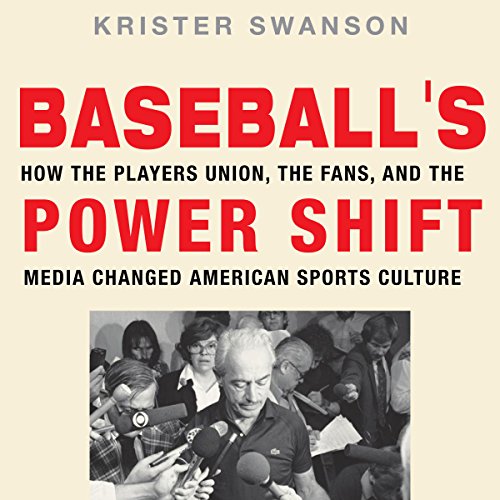A history of labor relations in MLB
Author Krister Swanson takes an examination of the tumultuous relationship between owners of Major League Baseball franchises and the players. Former Major Leaguer Rusty Staub was once remarked that the owners are nothing without the players, and the players are nothing without the owners. That makes sense on paper, but as demonstrated in “Baseball’s Power Shift,” it has never been that easy.
In 1876, baseball owners adopted the reserve clause, which bond a player to his team for the duration of the player’s career. The player could be sold or traded, but was not afforded the opportunity to shop his services around the league. Despite challenges through the years, it would not be until Curtis Floyd’s successful legal fight that the courts finally struck down the dreaded reserve clause, opening the door to free agency.
Swanson documents how the public’s perception of unions was shaped by the media, often times resulting in fans siding with the owner’s in labor squabbles. The owners were able to convince fans that the players should feel fortunate to earn a living playing a kid’s game, and were ungrateful and selfish when they complained. The players had to convince the public that they were workers, and deserved to be treated fairly. Some players had to work outside of baseball to support their families.
As established in “Baseball’s Power Shift,” owners insisted on the reserve clause to assure competitive balance. When challenged about the merits of the reserve clause, the magnates stated that baseball was an unique business, which required unique rules. Holding all the cards, owners could blacklist players that attempted to play elsewhere. For decades, the league was able to thwart off efforts of the players to unionize.
The players considered turning to the Teamster’s for assistance, but finally in the 60’s, a union was formed led by the shrewd Marvin Miller. The union successfully exposed the owner’s inflexibility, and the public’s perception started to shift. Miller was able to protect the player’s pension fund, and rallied support among some of the reluctant players. Swanson traces the decades of labor strife, and brilliantly shows how it relates to today’s issues.
By: Krister Swanson
Narrated by: John T. Arnott
Length: 10 hrs and 51 mins
Release date: 02-20-17


